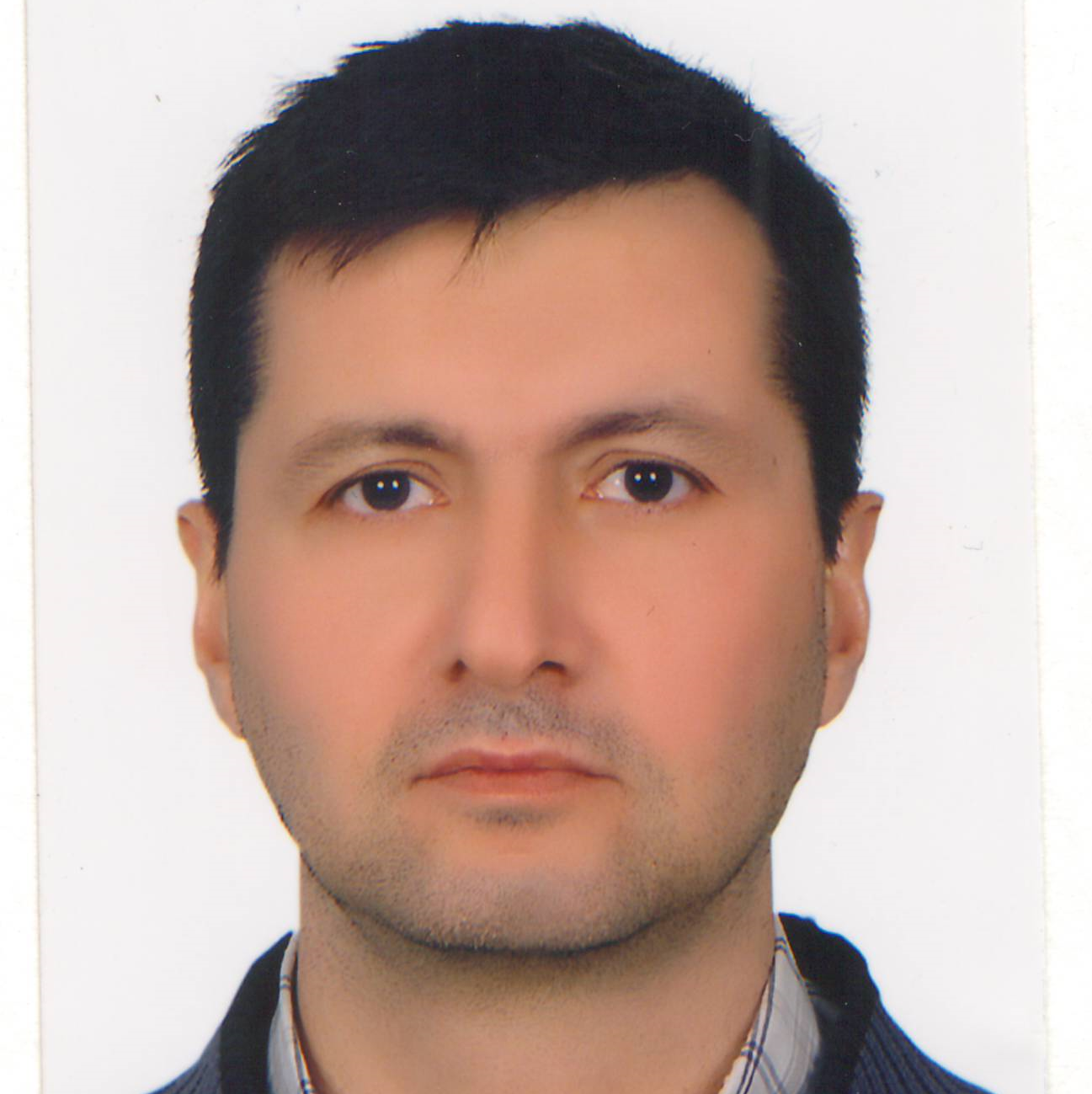Articles
Issue Reviewers

 0000-0001-7471-7977
0000-0001-7471-7977



 0000-0001-9147-4241
0000-0001-9147-4241
 0000-0003-4119-2443
0000-0003-4119-2443

 0000-0003-2110-7571
0000-0003-2110-7571


 0000-0002-7227-2780
0000-0002-7227-2780








 0000-0002-3407-1259
0000-0002-3407-1259

Aim & Scope
Academic Review of Economics and Administrative Sciences (OHUIIBFD) started to be published in 2008. Journal welcome papers for publications as original research papers. International scientific journal is published four times a year in January, April, July and October. Manuscripts submitted to the journal are only accepted if they have not been or will not be published and should not be under review elsewhere. Manuscript’s language is Turkish and English.
All responsibility of the studies belongs to the author(s). Studies must be sent to journal via Dergipark (https://dergipark.org.tr/en/pub/ohuiibf) system.
Author Guidelines
-Articles not published or submitted for publication elsewhere are accepted either in Turkish or English.
-Manuscripts should be typed on one side of a A4 sized paper and should not exceed 25, single spaced pages with the Times New Roman 11-font character size. Only e-mail posts are welcomed for article submissions.
-The first page should include (i) the title of the article; (ii) the name(s) of the author(s); (iii) institutional affiliation(s) of the author(s); (iv) an abstract of not more than 100 words in both English and Turkish; (v) keywords. The name, address, e-mail address, phone and fax numbers, affiliated institution and position, and academically sphere of interest of the author(s) should be indicated on a separate page.
-Tables, figures and graphs should be numbered consecutively and contain full references. The titles of the tables, figures and graphs should be placed at the heading of them; the references of tables, figures and graphs should be placed at the bottom of them. Decimals should be separated by a comma. Equations should be numbered consecutively. Equation numbers should appear in parentheses at the right margin. The full derivation of the formulae (if abridged in the text) should be provided on a separate sheet for referee use.
-Footnotes should be placed at the bottom of the page.
-All references should be cited in the text (not in footnotes), and conform to the following examples:
It has been argued (Safran, 1975: 83-100)....
Josh (1992a: 32-38) states....
(Robinson et.al., 2002: 382-9).
(Carlos-Kawani & Marry-Kawani, 1999: 446-10; Stiglitz, 1997: 102-227).
-References should appear at the end of the text as follows:
Books: Kenen, P.B. (1989), The International Economy, Englewood Cliffs, N.J.: Prentice-Hall, Inc.
Periodicals: Langeheine, B. & U. Weinstock (1985), "Graduate Integration", Journal of Common Market Studies, 23(3), 185-97.
Articles in edited books: Krugman, P. (1995), "The Move Toward Free Trade Zones", in P. King (ed.), International Economics and International Economic Policy: A Reader, New York: McGraw-Hill, Inc., 163-82.
Other sources: Central Bank of the Republic of Turkey (2003), Financial Stability, Press Release. March 24. Ankara, <http://www.tcmb.gov.tr>.
Chang, R. (1998), "The Asian Crisis", NBER Discussion Paper, 4470, National Bureau of Economic Research, Cambridge, Mass.
Ethical Principles and Publication Policy
Publication Ethics
The publication processes applied in the Academic Review of Economics and Administrative Sciences (OHUIIBFD) are the basis for the impartial and reputable development and dissemination of knowledge. The processes implemented in this direction are directly reflected in the quality of the work of the authors and the institutions supporting the authors. Peer-reviewed studies are studies that embody and support the scientific method. At this point, it is important that all stakeholders of the process (authors, readers and researchers, publishers, referees and editors) comply with the standards for ethical principles. Within the scope of Academic Review of Economics and Administrative Sciences (OHUİİBFD) publication ethics, all stakeholders are expected to carry the following ethical responsibilities. iThenticate or Turnitin can be used for ethics auditing and prevention of unethical attempts.
The following ethical duties and responsibilities are based on the guidelines and policies published by the Committee on Publication Ethics (COPE) as open access.
Ethical Responsibilities of Authors
The author(s) submitting a study to the Academic Review of Economics and Administrative Sciences (OHUİİBFD) are expected to comply with the following ethical responsibilities:
- The work submitted by the author(s) is expected to be original. In case the author(s) utilize other works or use other works, they are required to cite and/or quote them completely and accurately.
- Individuals who did not contribute intellectually to the content of the study should not be listed as authors.
- All manuscripts submitted for publication must disclose any conflicts of interest and relationships.
- The author(s) may be requested to provide raw data on their manuscripts as part of the review process; in such a case, the author(s) should be ready to provide the expected data and information to the editorial board.
- The author(s) should have a document showing that they have the rights to use the data used, the necessary permissions related to the research/analyses, or that the consent of the subjects of the experiment has been obtained.
-In the event that the author(s) becomes aware of an inaccuracy or error in the published, early view or under review manuscript, the author(s) has the obligation to notify the journal editor or publisher and to cooperate with the editor in correcting or withdrawing the manuscript.
- Author(s) can only be an author on one manuscript in the same year; other accepted manuscripts by the same author are included in the publication process for the following year (volume). Authors cannot request publication for second studies in the same year, even if they are accepted.
- Author(s) cannot have their work in the submission process of more than one journal at the same time. It can be started following the completion of each previous submission. A study published in another journal cannot be submitted to Academic Review of Economics and Administrative Sciences (OHUİİBFD).
- It cannot be proposed to change the author responsibilities (such as adding authors, changing the order of authors, removing authors) of a study whose evaluation process has started.
Ethical Duties and Responsibilities of Editors
The editors of Academic Review of Economics and Administrative Sciences (OHUİİBFD) should have the following ethical duties and responsibilities based on the "COPE Code of Conduct and Best Practice Guidelines for Journal Editors" and "COPE Best Practice Guidelines for Journal Editors" published by the Committee on Publication Ethics (COPE) as open access:
General duties and responsibilities
The editors are responsible for every publication in the Academic Review of Economics and Administrative Sciences (OHUİİBFD). In the context of this responsibility, the editors have the following roles and obligations:
Strive to meet the information needs of readers and writers,
Ensuring the continuous development of the journal,
Carrying out processes to improve the quality of studies published in the journal,
Supporting freedom of thought,
Ensuring academic integrity,
Maintaining business processes without compromising intellectual property rights and ethical standards,
Demonstrating openness and transparency in terms of publication in matters requiring correction and clarification.
Relations with the reader
Editors should take into account the expectations of knowledge, skills and experience needed by all readers, researchers and practitioners. Published studies should contribute to the reader, researcher, practitioner and scientific literature and should be original. In addition, editors are obliged to take into account feedback from readers, researchers and practitioners and to provide explanatory and informative feedback.
The duties and responsibilities of editors towards authors are as follows:
Editors should make a positive or negative decision based on the importance, original value, validity, clarity of expression and the aims and objectives of the journal.Editors should take the manuscripts that are suitable for the scope of publication to the preliminary evaluation stage unless there is a serious problem with the manuscript.
Editors should not ignore positive referee recommendations unless there is a serious problem with the study.
New editors should not change the decisions made by the previous editor(s) unless there is a serious problem.
The "Blind Review and Evaluation Process" should be published and should prevent deviations from the processes defined by the editors.
Editors should publish an "Author's Guide" that covers in detail every issue that will be expected of them by the authors. These guidelines should be updated at regular intervals.
Authors should be notified and returned in an explanatory and informative manner.
Relations with reviewers
The duties and responsibilities of the editors towards the reviewers are as follows:
Determine the reviewers in accordance with the subject of the study.
They are obliged to provide the information and guidelines that the reviewers will need during the evaluation phase.
Monitor whether there is a conflict of interest between authors and reviewers.
In the context of blinded refereeing, the identity information of the referees should be kept confidential.
Encourage reviewers to evaluate the manuscript in an impartial, scientific and objective manner.
Evaluate reviewers on criteria such as timeliness and performance.
Determine practices and policies to improve the performance of reviewers.
Take the necessary steps to dynamically update the referee pool.
Prevent unkind and unscientific evaluations.
Steps should be taken to ensure that the referee pool consists of a broad spectrum.
Relations with the editorial board
Editors should ensure that all editorial board members carry out the processes in accordance with editorial policies and guidelines. They should inform editorial board members about editorial policies and keep them informed about developments. They should train new editorial board members on editorial policies and provide them with the information they need.
Editors should also
Ensure that editorial board members evaluate the studies impartially and independently.
Identify new editorial board members who can contribute and have appropriate qualifications.
Send manuscripts suitable for the expertise of editorial board members for evaluation.
Interact regularly with the editorial board.
Organize periodic meetings with the editorial board for the development of editorial policies and the journal.
Relations with the journal owner and publisher
The relationship between editors and publishers is based on the principle of editorial independence.
Editorial and blind review processes
Editors are obliged to implement the "Blind Review and Evaluation Process" policies in the journal publication policies. In this context, the editors ensure that each manuscript is reviewed in a fair, impartial and timely manner.
Quality assurance
Editors are responsible for the publication of each article published in the journal in accordance with the journal's editorial policies and international standards.
Protection of personal data
Editors are responsible for ensuring the protection of personal data regarding the subjects or images included in the evaluated studies. Unless the explicit consent of the individuals used in the studies is documented, they are responsible for rejecting the study. Editors are also responsible for protecting the individual data of authors, reviewers and readers.
Ethics committee, human and animal rights
Editors are responsible for ensuring that human and animal rights are protected in the studies evaluated. In the absence of ethics committee approval for the subjects used in the studies and permissions for experimental research, they are responsible for rejecting the study.
Precautions against possible abuse and misconduct
Editors are obliged to take precautions against possible misconduct and malfeasance. It is the editor's responsibility to conduct a rigorous and objective investigation in identifying and evaluating complaints about this situation, as well as sharing the relevant findings.
Ensuring the integrity of academic publications
Editors should ensure that errors, inconsistencies or misleading judgments in manuscripts are corrected promptly.
Protection of intellectual property rights
Editors are responsible for protecting the intellectual property rights of all published articles and defending the rights of the journal and the author(s) in case of possible violations. The editors are also obliged to take the necessary measures to ensure that the content of all articles published by the editors does not violate the intellectual property rights of other publications.
Constructivism and openness to discussion
Editors should take into account the convincing criticisms of the works published in the journal and show a constructive attitude towards these criticisms.
The author(s) of the criticized studies should be given the right to reply.
Studies with negative results should not be ignored or excluded.
Complaints
Editors The author is obliged to carefully review complaints from reviewers or readers and to respond in an informative and explanatory manner.
Political and commercial concerns
The journal owner, publisher, and no other political or commercial considerations influence the independent judgment of the editors.
Conflicts of interest
The editors ensure that the publication process is completed in an independent and impartial manner, taking into account conflicts of interest between the author(s), reviewers and other editors.
Ethical Responsibilities of Reviewers
The evaluation of all studies by "Blinded Review" directly affects the quality of the publication. This process provides confidence through objective and independent evaluation of the publication. The review process of Academic Review of Economics and Administrative Sciences (OHUİİBFD) is carried out with the principle of double blind reviewing. Reviewers cannot communicate directly with the authors; reviews and comments are communicated through the journal management system. In this process, reviewer comments on the evaluation forms and full texts are communicated to the author(s) through the editor. In this context, referees who evaluate studies for Academic Review of Economics and Administrative Sciences (OHUİİBFD) are expected to have the following ethical responsibilities:
-Accept to review only studies related to their field of specialization.
-Should evaluate with impartiality and confidentiality.
-If they think that they are faced with a conflict of interest during the review process, they should refuse to review the study and inform the journal editor.
-Due to the principle of confidentiality, they should destroy the studies they have reviewed after the evaluation process. They can only use the final versions of the studies they have reviewed only after publication.
-Evaluate objectively only the content of the study. They should not allow nationality, gender, religious beliefs, political beliefs and commercial concerns to influence the evaluation.
-Evaluate in a constructive and courteous manner. They should not make derogatory personal comments containing hostility, slander and insult.
-Publishers should carry out the work they accept for evaluation in a timely manner and in accordance with the ethical responsibilities above.
Ethical Responsibilities of the Publisher
Niğde Ömer Halisdemir University, the publisher of Academic Review of Economics and Administrative Sciences (OHUİİBFD), is a non-profit state university. In this context, Niğde Ömer Halisdemir University acts with the awareness of the following ethical responsibilities regarding the Academic Review of Economics and Administrative Sciences (OHUİİBFD):
The editors are responsible for all processes of the studies submitted to Academic Review of Economics and Administrative Sciences (OHUİİBFD). In this context, editors are the decision-makers, regardless of economic or political gains.
It is committed to independent editorial decision-making.
The editors have the responsibility to take measures against all forms of scientific misconduct, citation mongering and plagiarism.
If You Encounter an Unethical Situation
If you encounter any unethical behavior or content in Academic Review of Economics and Administrative Sciences (OHUİİBFD) other than the ethical responsibilities mentioned above, please report it via e-mail to ohuiibfdergisi@gmail.com.
Price Policy
Ömer Halisdemir Üniversitesi İktisadi ve İdari Bilimler Fakültesi Dergisi (OHUIIBFD), makale sunumlarını memnuniyetle karşılamakta ve bir yayın ücreti talep etmemektedir.

Ömer Halisdemir Universitesi Iktisadi ve Idari Bilimler Fakültesi Dergisi (OHUIIBF) is licensed under the Creative Commons Attribution-Noncommercial-Pseudonymity License 4.0 international license.

